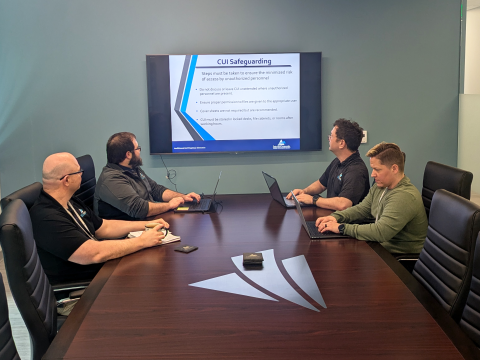Department of Defense Consolidates Small Business Access With Centralized Group
The Department of Defense will consolidate small business access into one group in accordance with the small business strategy released earlier this year.
The Department of Defense has small business specialists working in the services and its agencies, some running programs that are not well known by potential candidates. With this in mind, the Office of Small Business Programs will coordinate and serve as a centralized point of information, according to its director.
“One of the things that we're doing is we're creating this integration group that I will share, and it's going to bring together all of these stakeholders,” said Farooq A. Mitha, director of the Office of Small Business Programs, U.S. Department of Defense (DoD).
Commenting on this year’s small business strategy, Mitha described its main points and invited the small business community to access the office’s website for resources to comply with its central points, including cybersecurity compliance.
“There's really three major prongs to our small business strategy: one is creating a more unified management structure for small business programs; two is aligning our small business initiatives and activities with national security priorities; and three is providing more resources and support to small businesses,” Mitha told the audience.
Mitha spoke at AFCEA’s Northern Virginia Chapter Small Business Enterprise IT Day on Thursday in Herndon, Virginia.
Among the trends for small businesses, a consultant and government business coach identified several for SIGNAL Media.
“More and more contracts are going to the small businesses,” said Glenn Robinson, president of Deep Dive Series. “The other trend I see is that more and more of the large firms are relying on small businesses to work with,” Robinson added.
The COVID-19 pandemic seems to have left behind another new behavior.
“What I'm finding is, after COVID, that the people that are coming to our events are definitely looking to connect at a personal level besides the professional level,” said Susan Caulfield, Small Business Enterprise Committee chair at AFCEA Northern Virginia.
Another trend is around the Cybersecurity Maturity Model Certification or CMMC. This DoD standard does not have a deadline yet and new regulations are being drafted. Still, Mitha addressed it as something to expect soon and assured entrepreneurs there will be resources for companies to adopt at no cost on his agency’s website.
“I would say a lot of people who were dragging their feet for CMMC are realizing that now is the time to get ready, and so they're starting to pick up with that and starting to realize that it's now or never,” said Morgan Montague, senior solutions consultant at C3ISIT, a consultancy that helps organizations acquire these practices.

After COVID ... the people that are coming to our events are definitely looking to connect at a personal level.
Among the headwinds, litigiousness is at the top of the agenda.
“People are afraid of protests. It's wrong because any deal is going to be protested, so they should just straighten up, get the proposals or the acquisition out and not worry about being delayed,” Robinson told SIGNAL Media. Protests are legal procedures started by companies losing business at the Government Accountability Office or GAO, Robinson explained. These are “a challenge to the terms of a solicitation or the award of a federal contract,” according to the GAO website.
“Unfortunately, law firms are saying that firms have a 54% chance of winning a protest. That's not true. They have a 6 to 9% chance of winning,” Robinson added.
Another issue discussed widely at the event was small business growth. Once a company succeeds and grows into a medium-sized organization most benefits are lost, hampering growth prospects. Event participants and Mitha identified this lingering issue. During his keynote speech, Mitha said there will be future policy announcements to correct this.
Various small business resources were offered during this day, including AFCEA International memberships and opportunities to participate in relevant committees with the Northern Virginia Chapter and with AFCEA International, as well as an upcoming event for veteran-owned companies seeking to enter business with the DoD.




Comments